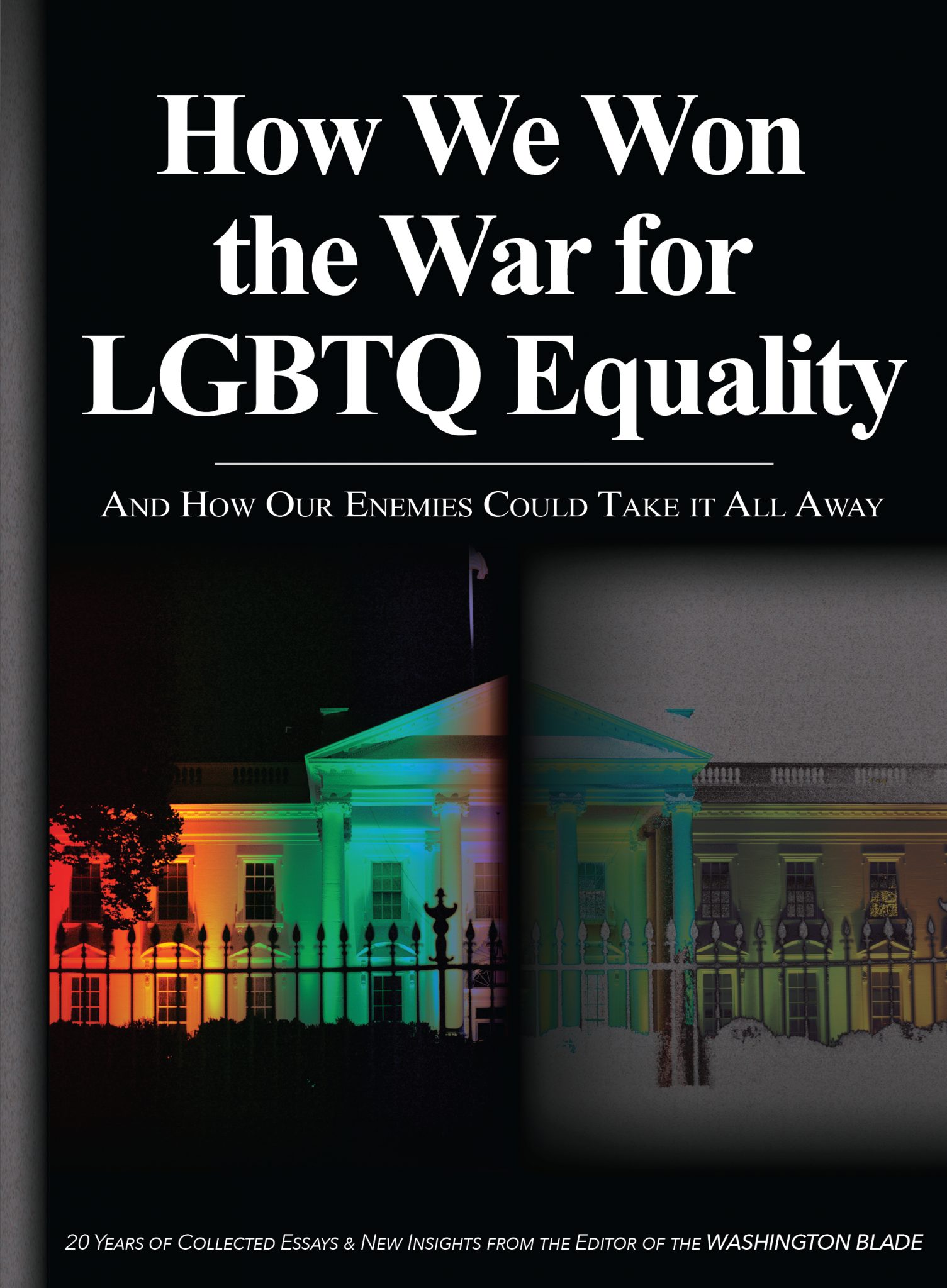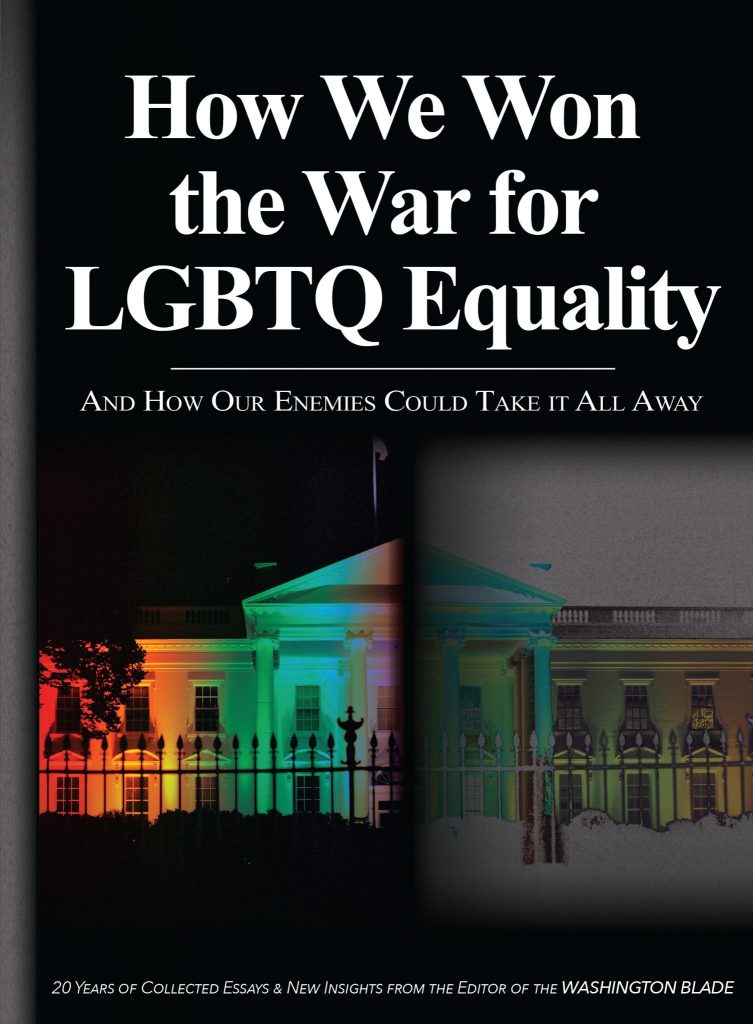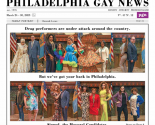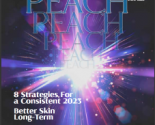
Washington Blade editor of 20 years tells all in new book
by Rob Watson
(The following story appeared in the March 23, 2023, issue of the Washington Blade. It appears here with permission.)
Washington Blade editor Kevin Naff published his first book, “How We Won the War for LGBTQ Equality — And How Our Enemies Could Take It All Away.”

The book commemorates Naff’s 20 years editing the Blade and features two decades of his work updated with new insights and commentary, touching on everything from the fight for marriage equality and repeal of “Don’t Ask, Don’t Tell” to celebrity encounters and the outing of public figures.
It’s part history lesson and part celebrity dish, available now at Amazon.com and kevinnaff.com.
The following is adapted from an interview between Rob Watson of Rated LGBT Radio and Naff. To listen to the full interview, visit blogtalkradio.com/ratedlgbtradio:
The two-decades long war in Afghanistan was the longest in U.S. history. Wars for civil rights have been much longer, and for many, nowhere near over. Ours for LGBTQ rights is a prime example.
While gains in our particular war have been many, and by historical standards, have come incredibly fast, they have now been fought by several generations.
Author and Washington Blade editor Kevin Naff highlights this perspective in his new book “How We Won the War for LGBTQ Equality.”
“Two decades represents a mere blip in the arc of a civil rights struggle, yet in that span, the LGBTQ community in the United States went from legally second-class status to enjoying near full protection of federal law along with widespread societal acceptance and even full marriage rights,” Naff writes.
He is aware that this look into our collective history represents a glimpse into a broader, and more painful fight, where many LGBTQ families lost their fights. “Not a week has gone by in my 20 years at the Blade that I didn’t think of the generation of gay men before me who didn’t live to see all of this progress,” he writes. “They inspire me. I do this work for them. They did not die in vain. Not just the men who died, but the lesbians who cared for them when no one else would. They are not forgotten.”
“This is not a dry history lesson type of book, but if you want to learn, the book does tell the marriage equality battle, ‘Don’t Ask Don’t Tell,’ and how a lot of our wins unfolded,” Naff declared when he sat down with me on the Rated LGBT Radio podcast.
He’s right. “How to Win” shares many of Naff’s articles written as events were unfolding. Absorbing these as a modern reader, I found my deep desire to fight against anything less than full equality, and repression against our abilities to self-actualize, getting hungrier and hungrier.
For those wanting “shade and the truth,” this book delivers, as it’s filled with page-turning anecdotes to keep you glued and voracious right to the very end.
Like many of us, Naff was persecuted for being perceived as gay when he was a kid. “The walk home from school was particularly terrifying — I walked alone and my tormentors would often follow, hurling rocks and anti-gay slurs. Sometimes the fear was so intense that I would feign sick just to avoid a day of the torture,” he writes.
His youth was not a time when there was much sympathy, or help, for LGBTQ children. It was the time of do-it-yourself. “There was the day I finally snapped, in seventh grade, while being taunted by a kid in gym class. The insults and threats became too much and all the anger rushed out of me. … I defended myself. And it felt good,” Naff reveals. He acknowledges that his bullies “forced me to cultivate an inner strength.”
Years later, as a journalist and conscience for public progressives, Naff’s unwillingness to back down, and passion to stand and fight, emerge time and time again in the book.
While he writes of contempt for George W. Bush’s opportunistic use of same-sex marriage as a campaign wedge issue, Naff stepped up his fight to the next level when facing Maryland Gov. Martin O’Malley. O’Malley was a progressive who used LGBTQ goodwill and campaign muscle to get elected. When an appeals court rejected same-sex marriage, O’Malley went from champion to cad at light speed. He issued an offensive statement about Catholic sacraments and asserted his opposition to marriage equality.
So, Naff outed the governor’s brother, Patrick. (That the brother was gay was a fact commonly known in social circles, but had not reached the media level previously.)
The governor was mad, but Naff landed a one-on-one interview with O’Malley, and eventually a path to the governor flipping support on the issue.
Naff’s unwillingness to allow LGBTQ people to be pushed around is not just with public figures who use us and then abandon us, people he calls “duplicitous allies,” but he feels no hesitancy in confronting Hollywood icons and their cults, as John Travolta found out.
Naff went viral with a piece in 2007 when he wrote a blog post criticizing the casting of a potentially closeted and indoctrinated Scientologist John Travolta, as the Divine-inspired drag role in John Waters’ musical version of “Hairspray.”
That post “generated the most attention and traffic of anything I’ve written,” Naff says. “My blog post encouraged gay fans to boycott the new film because its star, John Travolta, was Scientology’s No. 2 spokesperson and his cult was known to engage in reparative therapy, the debunked practice of changing one’s sexual orientation.”
Mainstream gossip media declared that “the gays were boycotting Hairspray.” Soon Naff found himself inundated with death threats, and being summoned by both Fox News and the Church of Scientology itself.
Naff agreed to a face off with Fox’s Bill O’Reilly whose friendly off-air persona turned rabid in front of the cameras. When Naff pointed out that he was comparing gay people to drug addicts, O’Reilly snarled, “Don’t be a wise guy, Mr. Naff.”
Naff’s biggest sin, according to the Church of Scientology, was referring to it as a “cult.” To prove that they weren’t, the president of the D.C. church invited Naff for a meeting. Upon arrival at the Scientology mansion in Dupont Circle, the church president gave Naff a tour, which included an “immaculate first-floor formal office.” After inquiring whose office it was, Naff was told that it was “Mr. Hubbard’s office” and that every church location had one. Scientology founder L. Ron Hubbard had been dead for 21 years at that point.
“Cult!” Naff and I exclaimed in unison as he told me the story.
As editor of the Washington Blade, Naff is an established invitee to the journalistic event of each season: The White House Correspondents’ Association Dinner. He writes about his dates he has taken each year from the heavenly (Judith Light) to the disastrous (Kathy Griffin). The latter made a point to scream expletives at Trump administration officials in attendance.
While Naff could appreciate the sentiment, Griffin left D.C. the next day, while he, the in-town professional, had to face all of her targets.
Laverne Cox was also a standout date. She accompanied Naff the night after Caitlyn Jenner’s televised coming out interview aired. “If one more reporter asks me about fucking Caitlyn Jenner, I’m going to lose it,” Naff reports Cox confiding. His story about Laverne Cox was not so much about Jenner, however, but reads like something out of “Oceans 8.”
Unlike the movie, Naff’s evening did not feature a planned jewel heist, nor were Sandra Bullock and Cate Blanchett anywhere in sight, but it did feature a pricey borrowed diamond bracelet that went missing off of Cox’s wrist. She feared the jeweler would accuse her of theft. The dilemma ultimately had one of the most famous transgender actresses of all time, and the editor of the nation’s oldest LGBTQ publication, frantically crawling under banquet tables surrounded by the Washington elite and press corps. Cox finally found the bauble at 4 a.m., deep at the bottom of her purse.
“How We Won” covers the arc of LGBTQ history over two crucial decades and hits on topics from bullying of youth, the “ex-gay” movement, the military, religion, police, and, of course, marriage equality. Besides his adventures with cults chasing him down, A-lister dates and angry governors, Naff also shares poignant emotional moments of his own.
One came in shocking fashion when he arrived to the Washington Blade offices one morning to find two men from the Blade’s then-parent company. They were there to shut the place down after a Chapter 7 bankruptcy filing.
Naff retreated to his office, scrambling to think out the next move. The Blade staff resolved to not give up and successfully put out a slim newssheet for a few months until they could recover the Blade’s assets from the bankruptcy court and keep the legacy alive.
One of the great ironies of the LGBTQ movement is that many people who have fought for progress are not the ones who live to enjoy all the gains. They win the battles but leave the new world for others to fully enjoy.
Naff is one of those pioneers. After an adult life fighting for LGBTQ people to exercise the right to marry our loves in a fully public, accepting way, challenging all who might deny a same-sex couple service, Naff had a life-changing revelation that made him choose to walk away from a huge wedding event for himself.
Months before his own wedding, he was in a serious automobile accident. He called his fiancé and pitched the idea of a small ceremony on the beach, followed by a gay cruise together around Asia. “Something happens when you are faced with a life-or-death kind of moment. It changes what’s important. It changes your perspective,” he tells me.
Naff started out his writing career as a 10-year-old writing to the Washington Post as a pissed-off Baltimore Orioles fan protesting the Major League Baseball strike of 1981. “I am STILL a pissed off Baltimore Orioles fan,” he says. From day one, he found his knack for observation and his gift for pointed communication. Those are the same qualities he brings to his participation in, and presentation of, our LGBTQ historic trek to equality victory.
In “How We Won,” he tells an unvarnished story, as he saw it, as he wrote about it, and continues to tell it, at the helm of the Washington Blade. He tells of the right-wing figures he confronted and continues to confront. He thinks of the term “outing” as an archaic term. Today, it is simply “truth-telling” of those in the public eye. As much as the title of his book implies a “win” and completion, I am confident that the 10-year-old pissed-off Baltimore Orioles fan within is not done.
Naff’s subtitle, after all, is “And How Our Enemies Could Take it All Away.”
A post-war recap for Naff might have been best expressed by the fictional Mr. Incredible when he said, “No matter how many times you save the world, it always manages to get back in jeopardy again. Sometimes I just want it to stay saved!”
As homophobic, transphobic Republican legislation sweeps the country, it is clear we are not done and a new chapter in the war has begun. At the end of “The Incredibles,” continuing the allegory, after a family of progressives have saved the world, a huge noisy crew disrupts it (symbolic of the MAGA wave). Out pops the Under-Miner who declares, “Behold, The Under-Miner! I am always beneath you, but NOTHING is beneath me! (As it seems so for the GOP.) I hereby declare war on peace and happiness! Soon all will tremble before me!”
The music swells, and the family of authentic-selves look at each other with a smirk, opening their shirts to reveal that they are Incredibles. They know that this time, like last time, they will not be defeated.
So stands Kevin Naff, looking back and looking forward, with his band of Incredibles, LGBTQ journalists worldwide, and the rest of us, ready to fight the fight again.
As we prepare for the new battles ahead, the principles of “How We Won” will be our tools for ultimate victory: be visible, be assertive, confront lies and injustice, reinvent, rebirth and in the end, hold our personal loves sacred.
Kevin Naff and Mr. Incredible would stand for nothing less. Neither should you.
SPECIAL REPORT
Volume 25
Issue 1








